
The NCWR Programme was launched by GWP-Med (coordinator) in 2008 in Greece and since then it has expanded in the Maltese Islands, in Cyprus, and in Sicily/ Italy. NCWR is a multi-stakeholder Programme, bringing together GWP-Med with the private sector and primary donors – the “Mission Water” Environmental Programme in Greece, the Coca-Cola Systems in Cyprus & Malta and the Coca-Cola Foundation in Atlanta, together with national and local authorities and NGOs, namely MIO-ECSDE (responsible of the educational component) and Nature Trust Malta. Apart from the educational activities for students and teachers, the Programme included applications of NCWR systems, such as rainwater harvesting and greywater recycling, awareness raising activities for the public and capacity building workshops for administrators, technicians, etc. in order to advance the NCWR management. Read more on the NCWR Programme.
The organisations
 Global Water Partnership – Mediterranean (GWP-Med) is a regional partnership of the Global Water Partnership (with inter-governmental status), established in 2002. GWP-Med is a multistakeholder platform bringing together competent organisations working on water issues from around the Mediterranean Region. Its goal is to promote action and exchange knowledge on Integrated Water Resources Management (IWRM) and the sustainable use
Global Water Partnership – Mediterranean (GWP-Med) is a regional partnership of the Global Water Partnership (with inter-governmental status), established in 2002. GWP-Med is a multistakeholder platform bringing together competent organisations working on water issues from around the Mediterranean Region. Its goal is to promote action and exchange knowledge on Integrated Water Resources Management (IWRM) and the sustainable use
of water resources at regional, national, local (including transboundary) level. E secretariat@gwpmed.org, W www.gwpmed.org, F/B www.facebook.com/GWPMed/

The Mediterranean Information Office for Environment, Culture and Sustainable Development (MIO-ECSDE) is a non-profit Federation of NGOs from the Mediterranean region working in the field of Environment and Sustainable Development. Since its establishment, back in 1996, MIO-ECSDE acts as a technical and political platform for the representation and intervention of the Civil Society in issues related to sustainability. E info@mio-ecsde.org, W www.mio-ecsde.org F/B https://www.facebook.com/MIOECSDE
 The Mediterranean Education Initiative for Education and Sustainability is the main long standing initiative of MIO-ECSDE having to do with education. It is actually a Mediterranean wide online network of educators on Education for Sustainable Development (ESD) launched in 2002. Its main objective is to provide capacity building on ESD topics and methodologies, develop appropriate resources in many languages and facilitate the educators e-network Ε info@medies.net W www.medies.net F/B www.facebook.com/MEdIES.Net/
The Mediterranean Education Initiative for Education and Sustainability is the main long standing initiative of MIO-ECSDE having to do with education. It is actually a Mediterranean wide online network of educators on Education for Sustainable Development (ESD) launched in 2002. Its main objective is to provide capacity building on ESD topics and methodologies, develop appropriate resources in many languages and facilitate the educators e-network Ε info@medies.net W www.medies.net F/B www.facebook.com/MEdIES.Net/
The sponsors
The development of the app was possible through the support of the Coca Cola Foundation (Atlanta), within the NCWR Programme in the Mediterranean, as well as the EU Life Programme – Operating Grants for NGOs (2018-2019), of MIO-ECSDE.

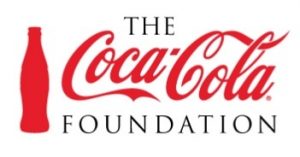

The app
- Authors: Vicky Malotidi & Iro Alampei, MEdIES/MIO-ECSDE
- Scientific Coordinator: Prof. Michael Scoullos, MIO-ECSDE & GWP-Med Chair, UNESCO Chair and Network at the UoA
- Web development: Michelle Kondou
- Web design: Eleni Spyridaki
The education team
- NCWR coordination: Konstantina Toli, GWP-Med
- NCWR educational component: Iro Alampei, Vicky Malotidi, Vassilis Psallidas
- NCWR visual identity : Kostas Caparos & Caparo design crew
- NCWR education activities in Attica/Greece: Vassilis Psallidas, MEdIES / MIO-ECSDE
- NCWR education activities in Malta & Gozo: Marvic Refalo, Ekoskola/NTM
- NCWR educational activities in Cyprus: Aravella Zachariou, Cyprus Pedagogical Institute
Special thanks
As MEdIES, we would like to warmly thank all the formal and non-formal educators who have embraced the NCWR Programme all these years and have continually supported the implementation, monitoring, evaluation and the growth of the Programme in their regions.
Specifically we thank :
From Cyprus: G. Amirotou, St. Chatziachileos, C. Fanis, G. Herodotou, D. Mougianou, S. Kamenou, K. Kefalas, K. Michael, N. Paparanikolas.
From Greece : A. Athanasopoulos, V. Baliousis, D. Bia, M. Chatzieleftheriou, N. Chazapis, A. Dardioti, M. Dimopoulou, I. Dinou, A. Fragkouli , D. Gavrili, I. Glynos, D. Gotzos, A. Hatziparaskeyaidis, Th. Ioannou, D. Kafritsa, M. Kagiafa, Th. Karaventzas, A. Kastanas, V. Kioupi, K. Kirdi, P.Kotsabasi, G. Kottis, A. Koukoutsi, E. Lentza, P. Loi, E. Manousou, N. Mastoropoulos, A. Mavrakis, I. Michailidou, E. Moula, M. Mylona, E. Niarchou, A. Panagou, N. Papadakis, M. Papadopoulos, Th. Papapavlou, P. Papazoglou, F. Peppa , V. Petridou, E. Printezi, M. Spartinou, N. Stefanopoulos, M. Theocharopoulos, C. Tsaliki , P. Tselektsidou, A. Tsigkou, V. Vorila & G. Voulgaris.
From Malta : E. Saliba, E. Sammut Carbone & V. Attard.
From Italy: P. Bonelli & I. Tenessidis.
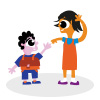 Target group (age)
Target group (age)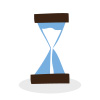 Duration
Duration Activity taking place in class
Activity taking place in class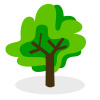 Outdoor activity
Outdoor activity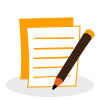 Worksheet
Worksheet Brief description of the activity
Brief description of the activity “Water-readings” texts with information
“Water-readings” texts with information “Stop and Wonder” questions for discussion
“Stop and Wonder” questions for discussion “Play and Learn” quizzes and games
“Play and Learn” quizzes and games “Solo Activity” description (working individually)
“Solo Activity” description (working individually) “Group Activity” description (working in groups)
“Group Activity” description (working in groups) “Water-shares” your feedback is asked
“Water-shares” your feedback is asked “Water-meter” your evaluation on the activity
“Water-meter” your evaluation on the activity “Way forward” proposed follow up activities
“Way forward” proposed follow up activities




